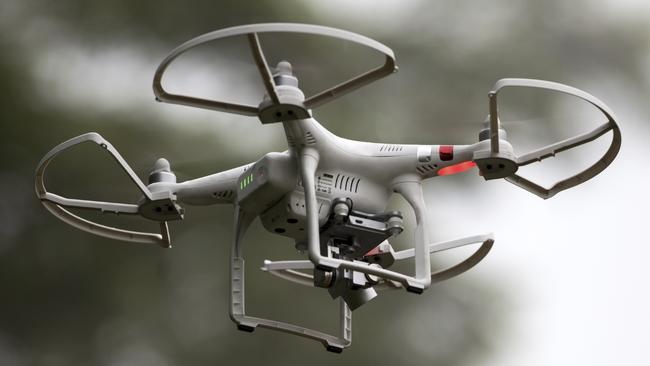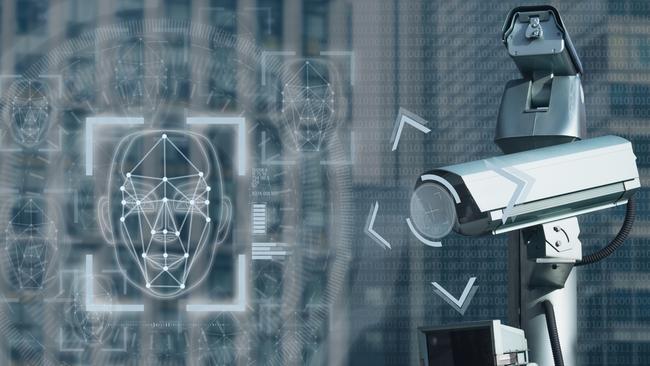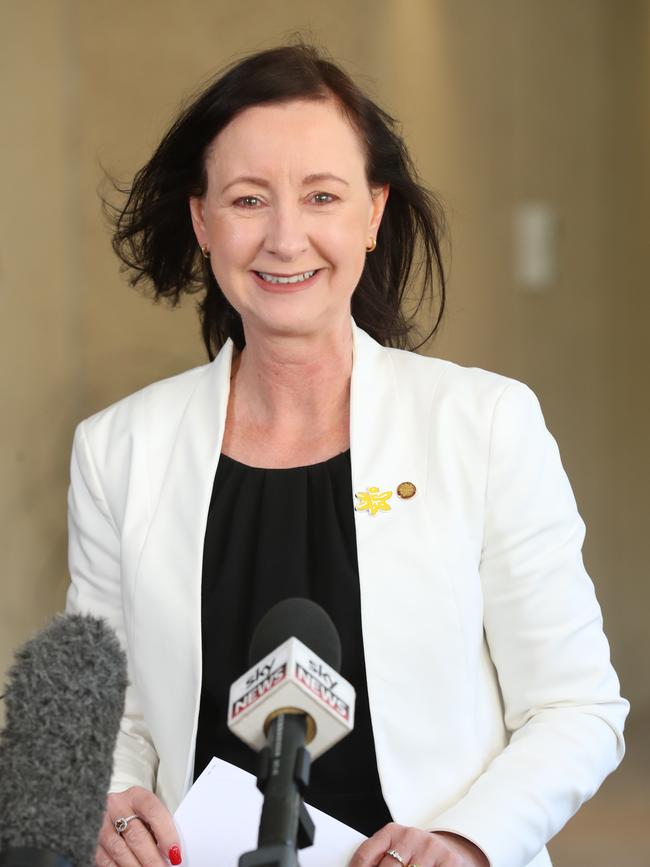Law Reform Commission leads push for new laws to protect Queenslanders’ privacy
Whether it’s a drone, infra-red sensors or simply a smartphone, people using technology to pry into the lives of others are about to be put on notice. Tough new laws could see them not just fined, but jailed.
QLD News
Don't miss out on the headlines from QLD News. Followed categories will be added to My News.
NEW laws will protect Queenslanders from a proliferation of surveillance cameras, aerial drones and tracking technology prying into their lives.
And criminal penalties including fines and imprisonment are likely for people caught invading privacy with everyday technology, including smartphone cameras.
The Queensland Law Reform Commission is drawing up legislation to finally regulate surveillance devices that are already recording, tracking and monitoring people daily, often without their knowledge.
Google slammed over privacy invasions in Washington hearings
Porn crackdown: It’s not an invasion of privacy. It’s parenting

It comes amid an 18-month review that found the state’s laws are woefully out of date.
The review will end soon, with the results due to be handed to the Palaszczuk Government in February.
However, commission chairman Justice David Jackson has already decided a “comprehensive legislative response” is needed to balance legitimate surveillance and protecting people from an unreasonable intrusion of their privacy.
It’s also looking at how to regulate the publication of video, audio and data collected by surveillance.
The commission found technology was becoming increasingly intrusive, secretive and mobile, probing into places that used to be out of reach and, in the future, would become autonomous.

For example:
● Cameras mounted on aerial drones can easily “peep over fences”.
● Infra-red sensors can “see” through walls.
● Smart devices can be used by outsiders to remotely “listen in” to people in their homes.
● Cameras with higher resolution and improved zoom capacity can capture more detailed images from greater distances.
● New forms of technology, such as GPS locations, can be accessed and tracked over time.
Justice Jackson said devices were becoming less expensive and more widely available than ever before.

“Civil surveillance technologies are used for a range of legitimate purposes,” he said.
“But they can also be used for improper and harmful purposes such as theft, stalking, harassment, bullying, peeping or prying.” The commission’s consultation paper references whether an offence might exist when surveillance is used to demean, harass, intimate or blackmail, for example in filming acts of violence, the aftermath of a traffic accident, consensual sexual activities, or the entering of people into places like gay bars, drug-treatment clinics or abortion clinics.
Queensland laws currently only restrict the use of listening devices, meaning there are no restrictions around optical surveillance, data surveillance or tracking devices, unlike other states.
Attorney-General Yvette D’Ath said the Government was concerned with the issues raised and confirmed she had heard complaints from Queenslanders over issues such as cameras installed by neighbours watching over their back yards, which is currently unregulated.
“As a Government, we want to ensure Queenslanders are protected from unreasonable privacy intrusions,” Ms D’Ath said.
Meanwhile, the commission is separately reviewing laws relating to workplace surveillance, including the use of cameras, monitoring of people’s computer use, and the use of technology to track workers’ movements


